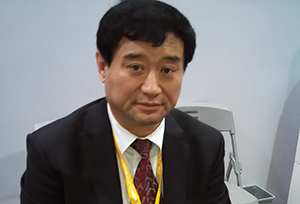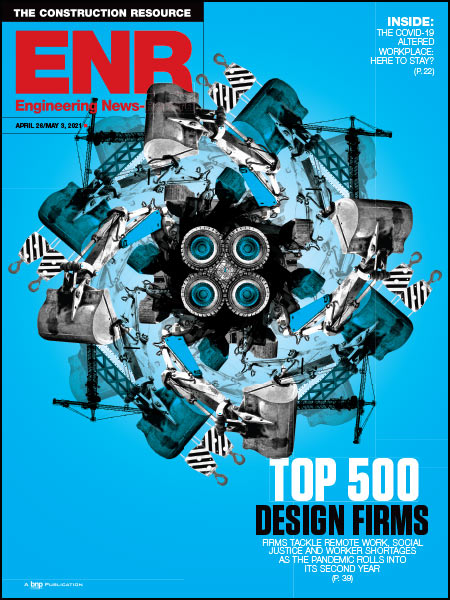
Su ZiMeng, Secretary General of the China Construction Machinery Association, represents member companies that form a large part of China’s estimated $1 trillion manufacturing industry, arguably account for half of the world’s heavy-equipment production and include 11 of the world’s top 50 equipment makers. The bulk of business comes from government-financed projects, though export revenue is growing. ENR sat down with Su at the Bauma China exhibition last month in Shanghai to discuss the state of the Chinese equipment manufacturing business and his forecast for 2015.
ENR: How do you view the current situation in the construction equipment industry?
Su: China’s construction machinery industry has gone through a period of adjustment since April 2011. Last year’s revenue was $94 billion. The 13 key players saw their revenue decline by 7.02% compared to the previous year. But if we include elevator and tunnel equipment, there is actually a slight increase in the overall revenue growth of the industry. The business of industrial trucks and forklifts has risen by double digits. Tunnel equipment has increased by more than 10% in 2013. But earthmoving equipment declined by more than 10%. The first three quarters of 2014 saw exports of $15 billion, which is about 1% rise year-on-year.
Is the Chinese industry capable of dealing with changes in technology and market conditions?
Su: What we are seeing in 2014 is a new determination to rise above the sluggishness of past years. Product upgrading has been accelerated. There is greater focus on emission reduction and energy saving. Many companies have achieved informatization covering areas like product development, resources management, production, manufacturing and after-sales. Key companies from China are rapidly expanding in the international sphere.
What are the prospects for 2015?
Su: We expect a 7% rise in the revenue of the 13 leading manufacturers next year. I can cite three reasons for this: This industry has declined for three and half years, and reached the bottom line. It will now start rising. The Government has unveiled new policies that will attract fresh investments into transportation, energy, water conservation and reconstruction of shanty towns. For instance, 20% more funds have been spent on highway construction in January to August this year as compared to the same period last year. A few days back, the government announced plans for reconstruction of large number of shanty towns between 2015 and 2017. We also expect 44 water conservancy projects to be taken up this year and the next. A total of 96 new rail routes covering 3,000 km have been planned. Besides, the government is reforming the state-owned companies by inviting the private sector to play a bigger role. This will also boost efficiency and increase demand. The newly created BRICS Bank will also play a crucial role in encouraging China’s construction machinery business. We expect a lot of Chinese companies to get business in India on the strength of their quality and service.
Is there any new effort at marketing products?
Su: Many manufacturers have launched a campaign for exchanging old equipment with new ones. They will refurbish the old machines and sell them with guarantees. The leading players are also creating special divisions for manufacturing equipment keeping in mind the special requirements of the rental industry.
How many Chinese companies have foreign collaboration?
Su: More than 200 foreign companies have collaboration with Chinese companies in this industry. All 13 key firms have foreign collaborators. Many big foreign companies like Komatsu, Caterpillar and Volvo are here.
What are your expectations from the government?
Su: We have made several proposals to the government; I will tell you a few important ones: We already have free market conditions. What we are asking for a sustainable environment for the industry’s growth. We also expect the industry association to play an important role in setting standards and implementing them. The government is encouraging all business to be more credible and trustworthy in transactions. We want the construction equipment industry to have stringent standards on credibility. If you make an agreement to buy, you have to pay. Everyone must abide by agreements and contracts. The association can monitor the issues of principal. Government can look after the legal issues. We need more powers for the association. The association will monitor and communicate with members about this issue.
You mean breach of contracts and agreements are a major problem?
Su: Yes. It is a problem. We are not saying the problem is very serious. It can happen in low selling period when competition is tough. But we want to curb malpractices. Such things happen only in the case of local contracts. People make an initial payment and pay the rest in installments. So, problems arise. The situation is better in the case of international deals because there are international standards. For example, letters of credit are made for payments.



Post a comment to this article
Report Abusive Comment